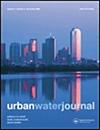Microbial quality and emerging pollutants in freshwater systems of Mega Manila, Philippines: a scoping review
IF 1.6
3区 环境科学与生态学
Q3 WATER RESOURCES
引用次数: 0
Abstract
ABSTRACT Microbial and chemical qualities of drinking water and freshwater bodies in highly urbanized regions of developing countries remain as global knowledge gaps. This current scoping review addressed this issue in the case of Mega Manila, Philippines. Quantitative and qualitative analyses of literature were done to support syntheses and identify gaps in water quality monitoring and management. The microbial quality of freshwater bodies and drinking water within the region is indicated by the detected microbial communities, bacterial species, and genetic elements associated with drug resistance, through culture-dependent and -independent approaches. Heavy metals were found to contaminate freshwater bodies but were absent in the drinking water supply. Overall, our findings highlight the need for harmonizing monitoring tools and data to assess water safety. Outside Mega Manila, freshwater bodies and drinking water supply must be monitored. Research focusing on environmental and public health as impacted by drinking water and resources must also be prioritized.微生物质量和新出现的污染物在大马尼拉淡水系统,菲律宾:范围审查
发展中国家高度城市化地区饮用水和淡水水体的微生物和化学质量仍然是全球知识空白。当前的范围审查在菲律宾大马尼拉的情况下解决了这个问题。对文献进行了定量和定性分析,以支持综合和确定水质监测和管理方面的差距。该区域内淡水水体和饮用水的微生物质量由检测到的微生物群落、细菌种类和与耐药性相关的遗传因素来指示,通过培养依赖和独立的方法。在淡水水体中发现了重金属污染,但在饮用水供应中没有发现重金属。总的来说,我们的研究结果强调了统一监测工具和数据以评估水安全的必要性。在大马尼拉之外,必须监测淡水水体和饮用水供应。还必须优先考虑以受饮用水和资源影响的环境和公共卫生为重点的研究。
本文章由计算机程序翻译,如有差异,请以英文原文为准。
求助全文
约1分钟内获得全文
求助全文
来源期刊

Urban Water Journal
WATER RESOURCES-
CiteScore
4.40
自引率
11.10%
发文量
101
审稿时长
3 months
期刊介绍:
Urban Water Journal provides a forum for the research and professional communities dealing with water systems in the urban environment, directly contributing to the furtherance of sustainable development. Particular emphasis is placed on the analysis of interrelationships and interactions between the individual water systems, urban water bodies and the wider environment. The Journal encourages the adoption of an integrated approach, and system''s thinking to solve the numerous problems associated with sustainable urban water management.
Urban Water Journal focuses on the water-related infrastructure in the city: namely potable water supply, treatment and distribution; wastewater collection, treatment and management, and environmental return; storm drainage and urban flood management. Specific topics of interest include:
network design, optimisation, management, operation and rehabilitation;
novel treatment processes for water and wastewater, resource recovery, treatment plant design and optimisation as well as treatment plants as part of the integrated urban water system;
demand management and water efficiency, water recycling and source control;
stormwater management, urban flood risk quantification and management;
monitoring, utilisation and management of urban water bodies including groundwater;
water-sensitive planning and design (including analysis of interactions of the urban water cycle with city planning and green infrastructure);
resilience of the urban water system, long term scenarios to manage uncertainty, system stress testing;
data needs, smart metering and sensors, advanced data analytics for knowledge discovery, quantification and management of uncertainty, smart technologies for urban water systems;
decision-support and informatic tools;...
 求助内容:
求助内容: 应助结果提醒方式:
应助结果提醒方式:


